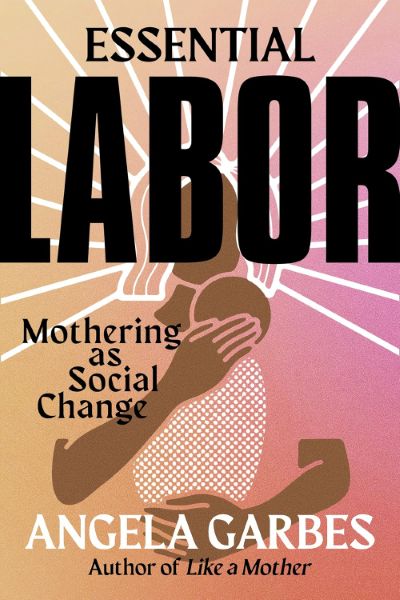Essential Labor: Mothering as Social Change
First-generation Filipino American author Angela Garbes combines memoir with cultural analysis to critically examine mothering expectations and assumptions, revealing how American society depends on yet often overlooks the essential contributions of mothers and family caregivers.

📝 Book Review
“Essential Labor: Mothering as Social Change” is a groundbreaking work by first-generation Filipino American author Angela Garbes, published in 2022. This book makes a significant contribution to contemporary feminist theory on motherhood with its unique perspective and profound insights. Garbes masterfully combines personal memoir with deep cultural analysis to provide a revolutionary examination of societal expectations around motherhood, revealing how the core role of mothers and family caregivers is systematically overlooked and marginalized in hypercapitalist civilization.
As one of the most influential Asian American feminist writers of our time, Angela Garbes brings a precious dimension to this work through her unique cultural identity. As a first-generation Filipino American, she possesses a distinctive immigrant perspective that enables her to observe and analyze motherhood phenomena in American society with exceptional acuity. Her background as a seasoned cultural critic and journalist provides her with solid analytical skills and keen social observation abilities. Garbes’ most important theoretical contribution lies in her redefinition of the social value of motherhood and care work, challenging traditional systems of labor valuation. Her previous work “Like a Mother: A Feminist Journey Through the Science and Culture of Pregnancy” has already received widespread acclaim, establishing her authority in this field.
In terms of core theoretical contributions, Garbes provides a revolutionary reinterpretation of the concept of “essential labor.” Through the lens of economic value reassessment, she repositions motherhood and care work—long viewed as private responsibilities—as the foundation of the entire economic system. This repositioning is not merely theoretical but carries profound political and economic implications. Using the framework of social reproduction theory, she emphasizes the central role of care work in social continuity and development, pointing out that without these daily care activities, the entire operation of society would come to a halt. Garbes deeply critiques the problem of labor invisibility, revealing the complex mechanisms by which domestic labor is systematically overlooked—this oversight is reflected not only in economic statistics but more deeply in social values and policy making. She further reconstructs the concept of value production, redefining what constitutes truly “productive” labor, challenging the narrow notion that only marketized labor is considered valuable.
Another important contribution by Garbes is elevating motherhood from the traditional private sphere to the level of political analysis. She employs the feminist analytical framework of “the personal is political” to provide a politicized interpretation of mothering experiences, revealing how seemingly personal parenting experiences are actually deeply embedded in larger political and economic structures. Through institutional analysis methods, she deeply examines the various institutional structures that support contemporary mothering expectations—from healthcare systems to educational systems, from workplace policies to social security systems—showing how these institutions collectively shape and maintain specific mothering patterns. She keenly reveals the complex gender power dynamics in motherhood, demonstrating how motherhood can serve both as a site of women’s oppression and as a space where women gain power and influence. Most importantly, she explores the enormous potential of motherhood as a force for social change, providing new perspectives for rethinking pathways to social transformation.
Garbes employs a unique writing method in “Essential Labor,” organically combining memoir with theoretical analysis. This approach not only enhances the readability of the work but more importantly provides a solid empirical foundation for theoretical analysis. She uses her own mothering experiences as the starting point for analysis, allowing readers to deeply understand the real experiences of a modern mother through detailed and sincere personal narratives. However, Garbes does not stop at the level of personal experience; she skillfully rises from personal experience to theoretical heights, transforming personal confusion, struggles, and insights into profound critiques of entire social structures. She combines deep cultural analysis to reveal the social structures and power relations hidden behind personal experiences, showing how individual experiences are shaped by larger social forces. Particularly noteworthy is her development of intergenerational dialogue with mothers and daughters throughout the book. Through this cross-generational experiential dialogue, she not only enriches the dimensions of analysis but also demonstrates how mothering experiences change across different historical periods and social conditions.
The core arguments in the book unfold around several important analytical threads. First is the reexamination of labor value, where Garbes questions traditional labor evaluation systems, particularly the bias that only values marketized labor while ignoring care work. She establishes an economic framework for care work, attempting to provide economic theoretical support for these long-overlooked forms of labor. She deeply analyzes society’s unrealistic expectations of the “perfect mother,” revealing how these cultural expectations create enormous psychological and practical pressure for real mothers. At the same time, she explores the complex impacts of current policies on mothers—from parental leave to childcare policies, from health insurance to education systems—analyzing how these policies affect mothers’ daily lives and long-term development.
In applying an intersectional perspective, Garbes demonstrates exceptional theoretical sensitivity. She analyzes mothering experiences from her unique perspective as an Asian American woman, deeply exploring the complex intersection between race and motherhood. The special care challenges faced by immigrant families are one of her analytical focuses, showing how immigrant mothers strive to provide the best care for their children while navigating multiple barriers of language, culture, and institutions. The conflict between traditional cultural expectations and American social realities constitutes another important dimension of her analysis, revealing how immigrant mothers seek balance between two cultural systems. She particularly critiques the stereotype of Asians as “model minorities,” analyzing how this stereotype creates unrealistic “model mother” expectations, placing additional pressure on Asian mothers. The role of mothers in cross-cultural transmission is also a focus of her attention, exploring the complex position and responsibilities of mothers in intergenerational cultural inheritance.
Discussion
读书讨论
分享您对这本书的感想和看法,与其他读者交流见解
加入讨论
分享您对这本书的感想和看法,与其他读者交流见解
加载评论中...
Book Info
🛒 Get This Book
 Buy on Amazon
Buy on Amazon Related Books
读书讨论
分享您对这本书的感想和看法,与其他读者交流见解
加入讨论
分享您对这本书的感想和看法,与其他读者交流见解
加载评论中...

